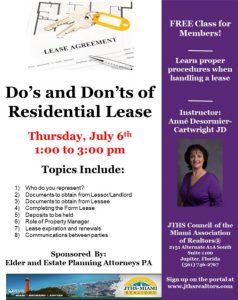When creating an estate plan, a common goal for many people is to avoid probate proceedings. Probate is the legal process through which the assets of a deceased person are distributed to heirs and beneficiaries. Did you know, however, that there is an additional type of probate proceeding called ancillary probate?
Ancillary probate can be required if you own real property or other assets that are attached in another state. To help you learn more about this important estate planning topic, let us share with you a few tips you need when it comes to ancillary probate.
First, it is important to be careful when appointing a future beneficiary as a joint owner or payable on death recipient of any property you own outside of Florida. Before committing to this important choice, take some time to consider whether what will happen if you need to be the sole owner of the property. Further, evaluate whether this lifetime gift will exclude you from public benefits such as Medicaid and what will happen if you change your mind after making this appointment. Discussing the implications of this decision with an experienced, local estate planning attorney may provide you with some peace of mind.
Second, did you know that a last will and testament will likely not cover any property you own outside of Florida? Unfortunately, this is true, and a factor that is commonly overlooked when people create their estate plans. A last will and testament only protects your in-state property, so be sure to account for this in your estate plan to ensure all of your property remains protected.
Above all, ancillary probate is not a “one size fits all” proceeding. We encourage you to discuss your specific circumstances with an experienced estate planning attorney who is familiar with the laws of your state. There are no uniform rules concerning ancillary probate, as different states have different laws. Importantly, do not wait to notify your estate planning attorney if you acquire any property outside of Florida or if you are planning a move in the near future.
These are just a few tips about ancillary probate. We know that this topic may raise more questions than it answers, as it is a particularly complex topic that can be challenging to understand. We encourage you and your loved ones not to wait to find the answers you need. We look forward to supporting you and your loved ones with your estate planning needs.







